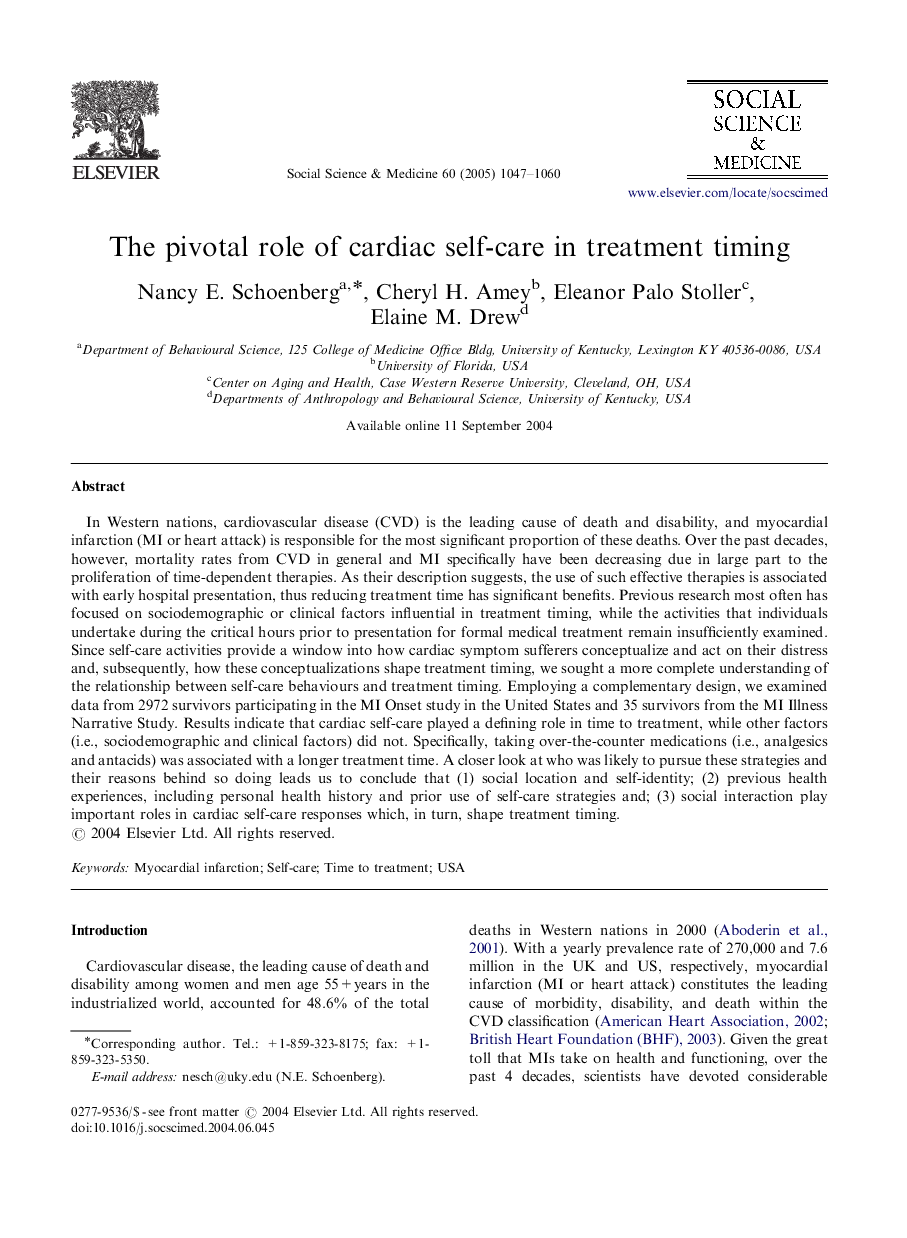| کد مقاله | کد نشریه | سال انتشار | مقاله انگلیسی | نسخه تمام متن |
|---|---|---|---|---|
| 10473241 | 927731 | 2005 | 14 صفحه PDF | دانلود رایگان |
عنوان انگلیسی مقاله ISI
The pivotal role of cardiac self-care in treatment timing
دانلود مقاله + سفارش ترجمه
دانلود مقاله ISI انگلیسی
رایگان برای ایرانیان
کلمات کلیدی
موضوعات مرتبط
علوم پزشکی و سلامت
پزشکی و دندانپزشکی
سیاست های بهداشت و سلامت عمومی
پیش نمایش صفحه اول مقاله

چکیده انگلیسی
In Western nations, cardiovascular disease (CVD) is the leading cause of death and disability, and myocardial infarction (MI or heart attack) is responsible for the most significant proportion of these deaths. Over the past decades, however, mortality rates from CVD in general and MI specifically have been decreasing due in large part to the proliferation of time-dependent therapies. As their description suggests, the use of such effective therapies is associated with early hospital presentation, thus reducing treatment time has significant benefits. Previous research most often has focused on sociodemographic or clinical factors influential in treatment timing, while the activities that individuals undertake during the critical hours prior to presentation for formal medical treatment remain insufficiently examined. Since self-care activities provide a window into how cardiac symptom sufferers conceptualize and act on their distress and, subsequently, how these conceptualizations shape treatment timing, we sought a more complete understanding of the relationship between self-care behaviours and treatment timing. Employing a complementary design, we examined data from 2972 survivors participating in the MI Onset study in the United States and 35 survivors from the MI Illness Narrative Study. Results indicate that cardiac self-care played a defining role in time to treatment, while other factors (i.e., sociodemographic and clinical factors) did not. Specifically, taking over-the-counter medications (i.e., analgesics and antacids) was associated with a longer treatment time. A closer look at who was likely to pursue these strategies and their reasons behind so doing leads us to conclude that (1) social location and self-identity; (2) previous health experiences, including personal health history and prior use of self-care strategies and; (3) social interaction play important roles in cardiac self-care responses which, in turn, shape treatment timing.
ناشر
Database: Elsevier - ScienceDirect (ساینس دایرکت)
Journal: Social Science & Medicine - Volume 60, Issue 5, March 2005, Pages 1047-1060
Journal: Social Science & Medicine - Volume 60, Issue 5, March 2005, Pages 1047-1060
نویسندگان
Nancy E. Schoenberg, Cheryl H. Amey, Eleanor Palo Stoller, Elaine M. Drew,